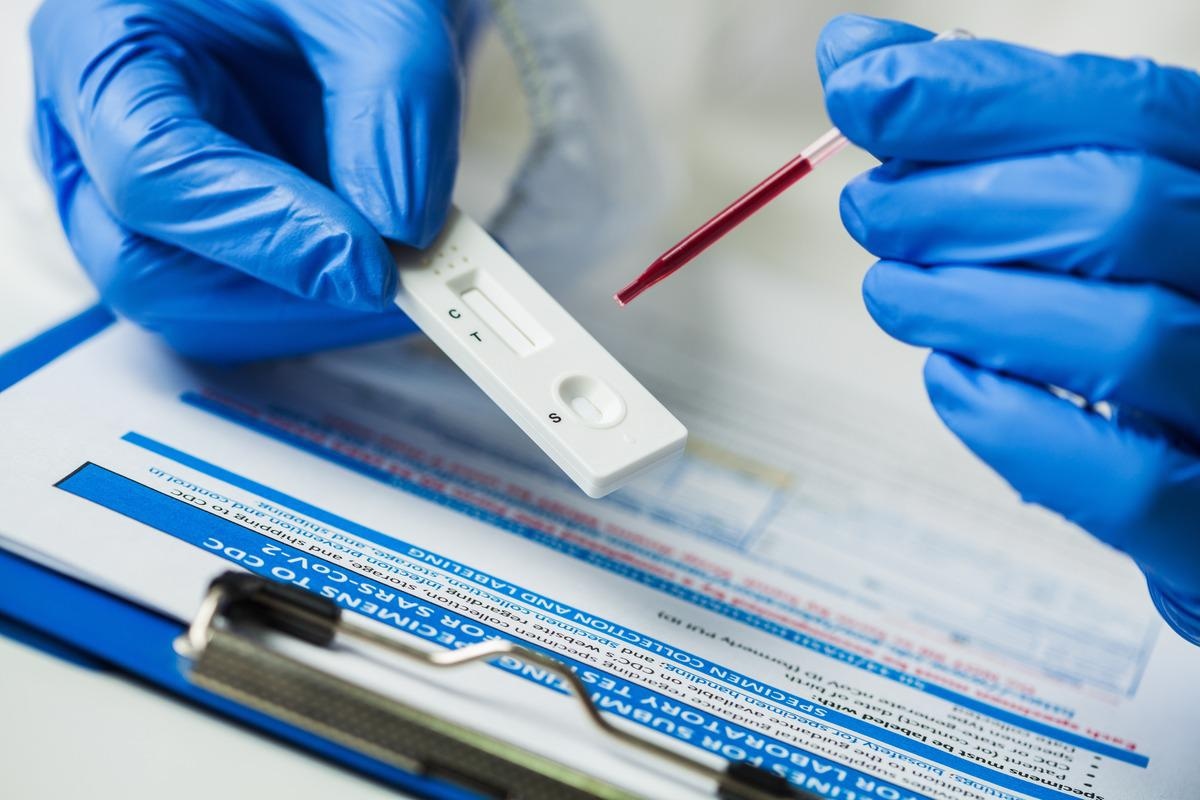A team of researchers from the United States (US) compared the accuracy of the Abbott BinaxNOW coronavirus disease 2019 (COVID-19) rapid antigen test diagnostic kit against the gold standard reverse transcription-polymerase chain reaction (RT-PCR) testing method among children.
 Study: High Sensitivity and NPV for BinaxNOW Rapid Antigen Test in Children at a Mass Testing Site During Prevalent Delta Variant. Image Credit: Cryptographer/Shuttershock
Study: High Sensitivity and NPV for BinaxNOW Rapid Antigen Test in Children at a Mass Testing Site During Prevalent Delta Variant. Image Credit: Cryptographer/Shuttershock
This study is available on the medRxiv* pre-print server, whilst the article undergoes peer review.

 This news article was a review of a preliminary scientific report that had not undergone peer-review at the time of publication. Since its initial publication, the scientific report has now been peer reviewed and accepted for publication in a Scientific Journal. Links to the preliminary and peer-reviewed reports are available in the Sources section at the bottom of this article. View Sources
This news article was a review of a preliminary scientific report that had not undergone peer-review at the time of publication. Since its initial publication, the scientific report has now been peer reviewed and accepted for publication in a Scientific Journal. Links to the preliminary and peer-reviewed reports are available in the Sources section at the bottom of this article. View Sources
Background
The ongoing COVID-19 pandemic has made children below 18 years highly susceptible candidates with limited to no vaccination opportunities available for them. The routine screening of the children in school is challenging due to delayed reporting of results, high costs of RT-PCR tests, and access disparities among marginalized populations. Meanwhile, rapid antigen tests have garnered attention as they provide result in minutes, are low cost, and can diagnose infectious diseases easily. However, the efficacy of these kits among children is conflicting.
About the study
In the present study, the researchers evaluated the sensitivity, specificity, and positive predictive values (PPV) and negative predictive values (NPV) of the Abbott BinaxNOW rapid antigen test against the RT-PCR test in pediatric participants below 18 years in the US with high COVID-19 testing from May 7, 2021, to December 6, 2021.
The demographic details, symptoms, and perceived exposure status of the participants were noted before sample collection. The active COVID-19 symptoms were classified based on the standard Centers for Disease Control and Prevention (CDC) symptom checklist and the participants who had at least one symptom from the checklist were referred to as “symptomatic” while those with no symptoms were referred to as “asymptomatic”. Participants who have lived with or were within 6 feet of any suspected or confirmed COVID-19 patient for more than 15 minutes were considered to have high-risk exposure.
Findings
A total of 1054 children participated in the study among which 508 (48.3%) were female and 546 (51.7%) were male. The average age of the study participants was 8.9 years. Among the participants 438 (41.6%) were White, 105 (9.9%) were Hispanic and 373 (35.4%) were African American. The symptomatic status of 1046 (99.2%) participants was obtained among which 756 (72.4%) were asymptomatic and 290 (27.6%) were symptomatic.
Based on RT-PCR test results, the overall COVID-19 prevalence rate was 5.2% (55/1054) - 9.0% for symptomatic participants and 3.6% (27/756) for asymptomatic participants. Among the symptomatic participants, 96.2% (275/286) were tested within 7 days after symptom onset. The prevalence rate for high-risk exposure participants who were symptomatic and asymptomatic was 20% and 7.2%, respectively.
The sensitivity of the BinaxNOW rapid antigen test was 92.7% for all participants. The sensitivity was the same for symptomatic and asymptomatic participants including those with high risk for exposure.
The specificity of the rapid antigen test for all participants was 98.0%, and the specificity for symptomatic and asymptomatic participants was 96.6% and 98.6%, respectively. For the symptomatic participants, the PPV was 72.7% and the NPV was 99.2%; For the asymptomatic participants, the PPV was 71.4% and NPV was 99.7%.
The average cycle threshold (CT) was similar for the symptomatic and asymptomatic groups (28.6 vs 27). At the CT count of 30 or below, the test showed 100% sensitivity for both symptomatic and asymptomatic participants.
Limitations and conclusion
The present study had some limitations including the following: a) the study enrolled only a few children with high-risk exposure, b) the study was single centered and the testing from a single-site cannot be generalized to all situations, and c) out of four false-negative tests, three were collected within 3 days of high-risk exposure which may be too early for detection by a rapid antigen test.
Overall, the present study confirmed the high accuracy of rapid antigen test kits and demonstrated rapid antigen tests as a reliable means to diagnose COVID-19 in children; therefore, the authors recommend they should be made widely available in schools to screen for COVID-19 in children.

 This news article was a review of a preliminary scientific report that had not undergone peer-review at the time of publication. Since its initial publication, the scientific report has now been peer reviewed and accepted for publication in a Scientific Journal. Links to the preliminary and peer-reviewed reports are available in the Sources section at the bottom of this article. View Sources
This news article was a review of a preliminary scientific report that had not undergone peer-review at the time of publication. Since its initial publication, the scientific report has now been peer reviewed and accepted for publication in a Scientific Journal. Links to the preliminary and peer-reviewed reports are available in the Sources section at the bottom of this article. View Sources